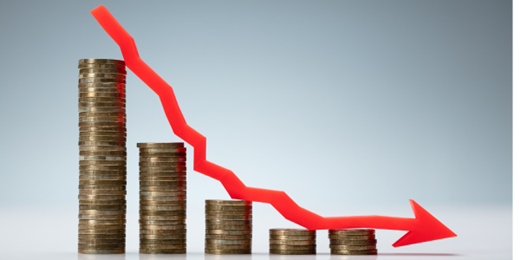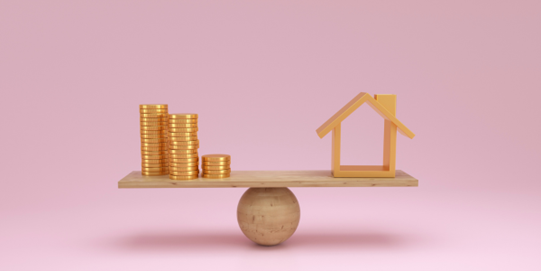Make No Mistake - Debt Matters
I don’t know about you. But I, for one, am sick and tired of hearing supposedly responsible individuals state that debt does not matter. It does. That’s why you have to protect your assets, writes Rich Checkan, president and COO of Asset Strategies International.
A recent Bankrate.com survey suggests the following…
- 82% of American adults say money negatively impacts their lives.
- 56% of women and 47% of men experience mental health issues due to financial stress.
- 29% of adults say they worry daily about money.
When asked what specific factors about money lead to stress, 68% said inflation, 31% said rising interest rates, and 29% said lack of a stable income or job security.
According to the Federal Reserve Bank of New York, total household debt increased by 1.2%, or $212 billion, in the fourth quarter of 2023 alone. At the end of 2023, household debt was at $17.5 trillion.
Mortgage balances made up $12.25 trillion of that number. Home Equity Lines of Credit (HELOCs) contributed $360 billion to the total household debt. Auto loan balances stood at $1.61 trillion and credit card debt was a whopping $1.13 trillion.
No wonder Americans are stressed out about debt. Those are gargantuan numbers. As a result, it is no surprise to me that the new, most popular way to buy votes for the upcoming election is through student or medical loan forgiveness. And while that is a truly noble cause, nobody is talking about how that bill will eventually be paid…and who will eventually pay it.

Waiter… check please.
Once the feast comes to an end, the waiter is never very far behind with the check. But who at the table is going to pay this bill? Everyone!
In brief, Congress overspends – in this case, on debt forgiveness. But we do not take in enough revenue as a nation to pay these and all our other bills. So, the Federal Reserve expands the money supply, creating currency, in effect, out of thin air.
A larger supply of currency in circulation, chasing the same, finite amount of goods and services, puts upward pressure on the prices for all goods and services. Anything of value goes up in price. That could be a gallon of gas, a new home, rent, milk, eggs, medical services, tuition, stocks, etc. You get the idea. Everything costs more.
Two things can happen next. Wages stay stagnant, or wages go higher.
If wages stay stagnant – like they are now – everything you need costs more. Without a new source of income – a raise, a side gig, or a winning lottery ticket – you have to do with less, and you worry about money constantly.
If wages keep pace with inflation, it kind of feeds into a vicious spiral of ever-higher inflation. Prices rise. Wages rise. Price pressures mount. Prices rise further. Wages rise further. And so on.
That is why this notion of the Federal Reserve’s target of 2% inflation is idiotic. In a developing economy, as goods and services become better and are produced more efficiently, prices should go down…not up.
Bottom line… we all pay for fiscal irresponsibility in Congress and from the President. We each pay our share of the bill the waiter brings to the table…even if we did not have anything to eat.

How Do We Break the Cycle?
At the national level, we need to cut spending, increase revenue, and balance the budget. The problem is, nobody in Congress and no Presidential candidate is willing to cut spending to only what we can afford. And nobody in Congress and no Presidential candidate is willing to do what is necessary to make businesses more productive and more profitable so they can pay more taxes and raise revenue.
So, it is every man and woman for themselves.
Here are several things I strongly suggest you do to ensure you are not one of the 82% of adult Americans that Bankrate.com suggests has their lives negatively impacted by money…
1. Live within your means. Make a budget. Ensure your inflow exceeds your outgo. Stick to it!
2. Pay yourself first. This was one of the first lessons Michael Checkan and Glen O. Kirsch taught me when I arrived at ASI over 28 years ago. Shoot for 20% in savings every paycheck. If you cannot do that initially, fine. Save something. Set it aside. Saving money is the most difficult, necessary, first step to becoming wealthy.
3. Protect your assets…even if you do not have any yet. You can do this through incorporation, trusts, and various insurance policies. I look at this as building the sturdy home that will eventually protect your family and your belongings. The house will be empty at first, but you will fill it up over time.
4. Insure everything that matters. Auto, home, and health insurance are all important. But do not forget about your wealth insurance. Start buying gold and silver now. Do not stop over time. I cannot tell you how many times – to include right now in this environment – that clients have tapped into their wealth insurance policies of gold and silver for an unforeseen financial crisis.
It would be nice if our elected leaders and those whom they appoint were not slowly destroying our currency and our economy. But your success does not depend upon them doing so. Take matters into your own hands. Be responsible for your own future.
More By This Author:
Gold: After Testing Support Around $2,300, Could Bullish March Resume?
Meta Platforms: Tripped Up By Concerns On Spending - But Sentiment Remains Bullish
GS: Profiting By Re-Focusing On Investment, Rather Than Consumer, Banking
Disclaimer: © 2023 MoneyShow.com, LLC. All Rights Reserved.



